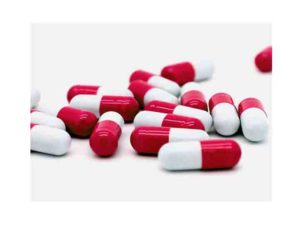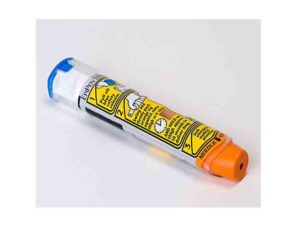Anti Allergy Tablets or Allergy Medicines are those medicines which are used to treat allergic symptoms.
Allergy Medicines are available in various forms. Tablets, syrup forms of Anti Allergy drugs are frequently in use.
Anti Allergy Tablets are usually suitable for older children and in adults. Whereas Syrup form is usually prescribed in Infant and children.
The most common anti allergy medicines are Anti Histamines. Often this Anti Histamines are available as over the counter drugs.
In moderate to severe cases of allergy can be treated with anti histamines with steroid drugs.
Forms of Anti Allergy Medicines
1. Antihistamines
Histamine is a biologically active substance that enhances inflammatory and immune responses of the body. It also has physiological function in the gut. Histamine also acts as neurotransmitter. Drugs which that antagonize these effects of histamines are called antihistamines. This type of anti allergy medicines are effective in mild to moderate form of allergy.
Classification of Antihistamines
H1 antihistamines:
- mostly used to treat allergic disorders and mast cell-mediated disorders.
H2 antihistamines:
- indicated primarily for gastric reflux disease
H1 antihistamines:
First generation or sedative antihistamines: Have a central effect. They can cause sedatives.
- Promethazine
- Diphenhydramine
- Brompheniramine
- Hydroxyzine
- Cyproheptadine
- Dimenhydrinate
This type of anti allergy medicines are notorious for causing drowsiness and sleepiness.
Second generation or less sedative antihistamines
- Loratadine
- Desloratadine
- Cetirizine
- Levocetirizine
- Fexofenadine
- Azelastine
This type of anti allergy medicines are less CNS effects like drowsiness and sleepiness.
Uses of antihistamines: anti histamines as anti allergy medicine will control symptoms of allergy from several diseases. But can act in other conditions as well like
- Allergic rhinitis/ Hay fever
- Allergic conjunctivitis
- Urticaria,
- Contact dermatitis
- Angioedema
- Rhinorrhea
- Motion sickness
- Antiemetic agent
Side effects of antihistamines
Side effect are more common with first generation antihistamines.
- Sedation
- Dry mouth
- Mydriasis
- Dizziness,
- Tinnitus,
- Urinary retention
- Tachycardia
- Headaches
H2 antihistamines:
Indicated primarily for gastric reflux disease because they reduce the production of stomach acid.
- Famotidine
- Cimetidine
- Ranitidine
- Lafutidine
- Nizatidine
- Roxatidine
2.Decongestants:
This type of anti allergy medicines are used to relieve a stuffy nose and sinus pressure. But decongestant can only be used for shorter time usually for three days. Longer time can cause a rebound effect, means once you stop the medicines your symptoms will actually get worse.
Decongestants include:
- Oxymetazoline
- Pseudoephedrine
- Phenylephrine
- Cetirizine with pseudoephedrine
One should be kept in mind that history of abnormal heart rhythm, heart disease, history of stroke, anxiety, a sleep disorder, high blood pressure, or bladder issues is important before commencing decongestant medication.
3.Eye drops and nasal sprays:
These type of anti allergy medicines help relieve itchiness and other allergy-related symptoms for a short time. However, depending on the product, you may need to avoid long-term use.
Like decongestants, overusing certain eye drops and nose drops can also cause a rebound effect.
4.Corticosteroids:
Corticosteroids can help with inflammation and immune responses. These do not cause a rebound effect. Steroid nasal sprays are commonly recommended as a long-term, useful way to manage allergy symptoms. Nasal steroid medications are the most effective medications.
Immunotherapy:
Your doctor may recommend immunotherapy, or allergy shots if you have severe allergies. You can use this treatment plan in conjunction with medications to control your symptoms. These shots decrease your immune response to particular allergens over time. They do require a long-term commitment to a treatment plan.




